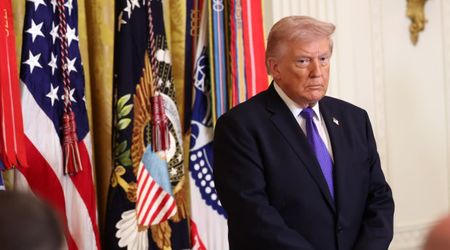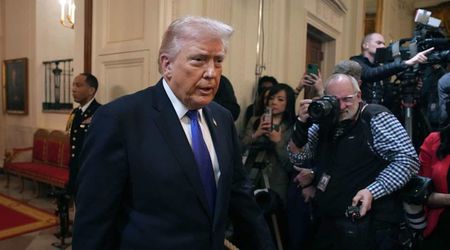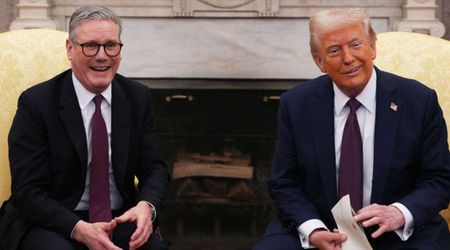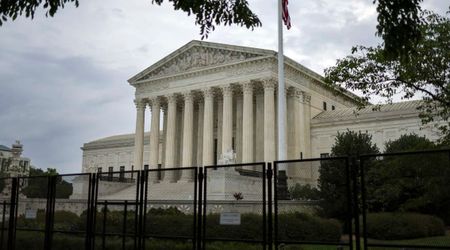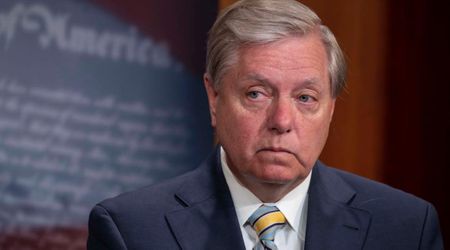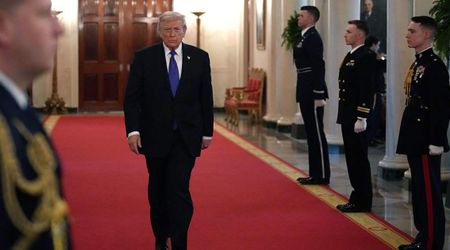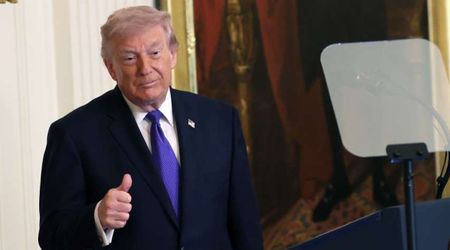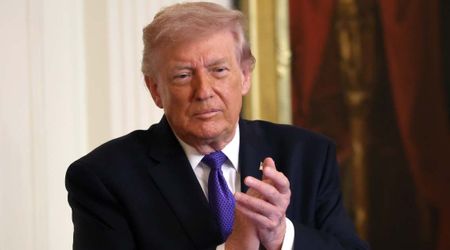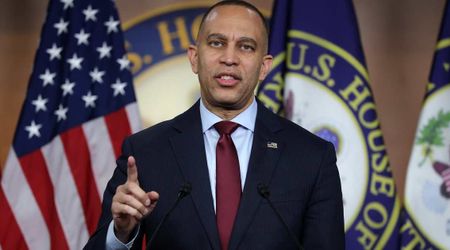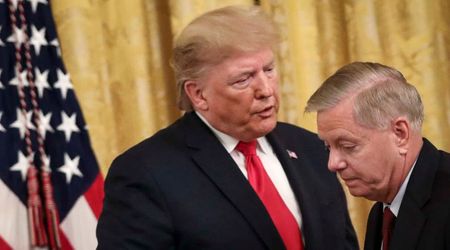Trump Trial Day 2: Five key takeways including David Pecker's testimony in hush money case
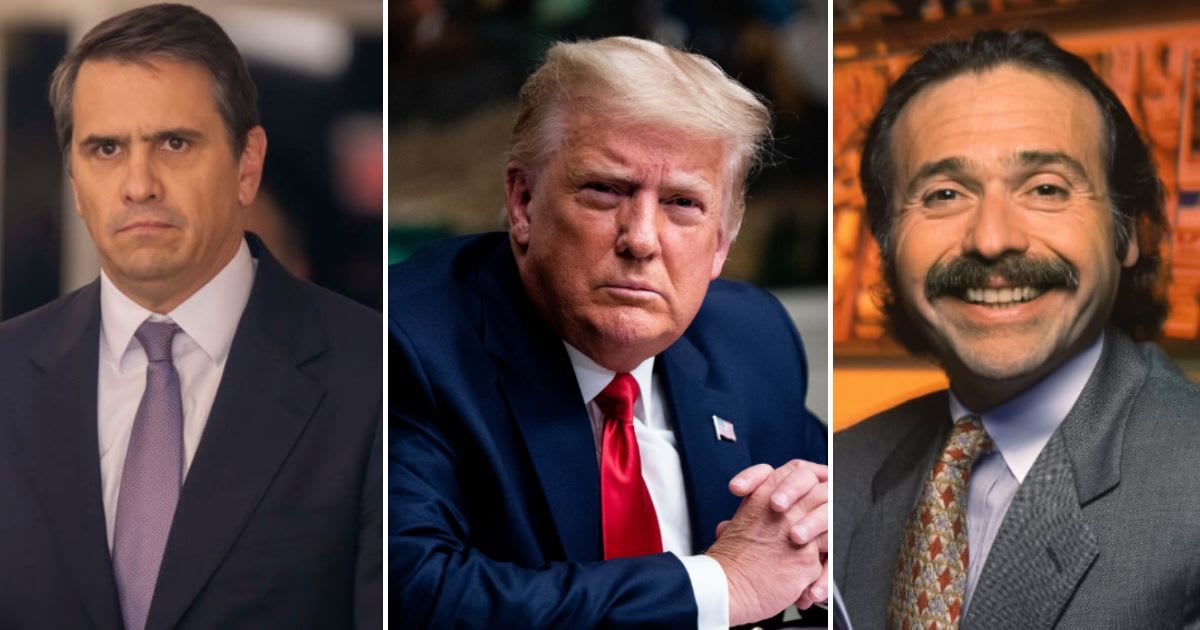
5 things we learned from Day 2 of Trump's hush money criminal trial

Day 2 proceedings of the hush money criminal trial in New York against former President Donald Trump was dramatic, with David Pecker's testimony and the presiding judge admonishing his lead attorney in a dramatic fashion. The first witness for the prosecution confirmed that Trump specifically sought the assistance of the National Enquirer tabloid to suppress negative stories that could have had an adverse impact on his 2016 presidential campaign. The ex-Commander-in-Chief watched as his long-time friend testified for the prosecution. The key takeaways from the proceedings held on Tuesday in People of the State of New York vs Donald J Trump are summarized below.
1. Judge Merchan holds off on finding Donald Trump in contempt of court

During the trial proceedings against former President Donald Trump, prosecutors from the Manhattan District Attorney's Office had requested that the 77-year-old be fined the maximum amount of $1,000 for each of the ten posts they believed violated the gag order. They argued that the MAGA strongman had directly and indirectly attacked his former lawyer, Michael Cohen, and adult film star, Stormy Daniels, in those posts. Judge Juan Merchan, who’s presiding over the criminal case, has refrained from finding Trump in contempt of court, at the moment. Regardless, the judge appeared dubious towards the arguments presented by the former POTUS's legal representative, Todd Blanche. During the contempt hearing, Blanche often found himself on the back foot and struggled to present convincing arguments. Following the contempt hearing, the trial resumed with testimony from the prosecution's first witness.
2. Merchan rips Blanche’s desperate attempt to protect Donald Trump

During Tuesday’s hearing, the presiding judge, Juan Merchan, expressed his disapproval of Trump's attorney Todd Blanche's attempts to prevent his client from being held in contempt of court for allegedly violating a gag order by attacking potential trial witnesses and other participants. “Mr Blanche, you’re losing all credibility, I have to tell you right now,” Judge Merchan remarked. “You’re losing all credibility with the court. Is there any other argument you want to make?” Blanche attempted to provide several explanations for the posts, including stating that the 2024 presumptive GOP nominee was responding to political attacks, which are allowed under the gag order, and that Trump was reposting links to New York Post stories or quotes from other individuals such as Fox News host Jesse Watters. The judge was unimpressed with these arguments and questioned why, in one instance, Trump waited until after a challenge against the gag order had been rejected by a New York appeals court to “respond” to a remark from Cohen, rather than responding immediately. Furthermore, the judge invited Blanche to provide examples of cases where reposts were differentiated from posts authored by the defendant, as well as to provide the specific political attack against Trump. Trump's situation worsened when the judge interrupted Blanche to clarify that it was incorrect to characterize one post as merely reposting a Watters’ quote from television. Merchan stated that Trump had "manipulated” the quote by incorporating his own additions and then putting quotation marks around it.
3. David Pecker’s testimony on Day 2 blew everybody away

Upon resumption of the trial on Tuesday afternoon, Manhattan District Attorney prosecutors promptly extracted testimony from David Pecker, the former National Enquirer publisher. Pecker confirmed that Donald Trump had personally engaged him and the tabloid to aid his 2016 presidential campaign. This association between Trump and Pecker is critical to the District Attorney's case, which is centered around upgrading misdemeanor charges for falsification of business records to felonies by demonstrating that they were committed in furtherance of a second crime, that is, conspiring to promote an electoral campaign through illegal means. Pecker testified that during a meeting with Trump and Cohen, he was asked how he could assist the 2016 presidential campaign. He stated that he informed them he would be the "eyes and ears" for the campaign and keep them informed of any negative stories on the real estate mogul.
4. The National Enquirer ‘deal’ was aimed at aiding Donald Trump’s run for the White House

David Pecker testified that he would notify Michael Cohen of unfavorable Trump stories brought up by women. “When someone is running for a public office like this, it is very common for these women to call up a magazine like the National Enquirer to try to sell their stories,” he claimed. It is important to note that the situation with former President Trump and porn star Stormy Daniels was rather precarious. Daniels had a story about an alleged affair with Trump, which Pecker later identified as potentially damaging to the 2016 Trump campaign with female voters, given that it arose soon after the release of the infamous Access Hollywood tape. Prosecutors had Pecker confirm that Cohen had wanted the arrangement to be kept confidential, with the inference being that it would otherwise undermine the purpose of having the National Enquirer "catch and kill" negative stories about Trump before the 2016 general election.
5. David Pecker says Donald Trump carefully managed his financial records

During the investigation conducted by the Manhattan District Attorney prosecutors, David Pecker provided a detailed account of how former President Donald Trump personally reviewed and approved invoices and other financial documents. This information is of great significance as Trump's defense rests partly on his claim that he delegated such responsibilities to individuals like Cohen. Pecker harked back, claiming, “While he was reviewing the accounts payable packages, we were talking at the same time, and I noticed that he reviewed the invoice, looked at the check, and he would sign it.” Prosecutor Joshua Steinglass inquired of Pecker the manner in which the documents were presented to Trump. The prosecutor sought to establish that Trump's financial management was scrupulous and that he did not sign checks indiscriminately without knowledge of their intended purpose. When asked if the check had been stapled to the invoice, Pecker replied, “As I recollect, the entire package was stapled together. I thought that his approach to money, he was very cautious and very frugal.”

